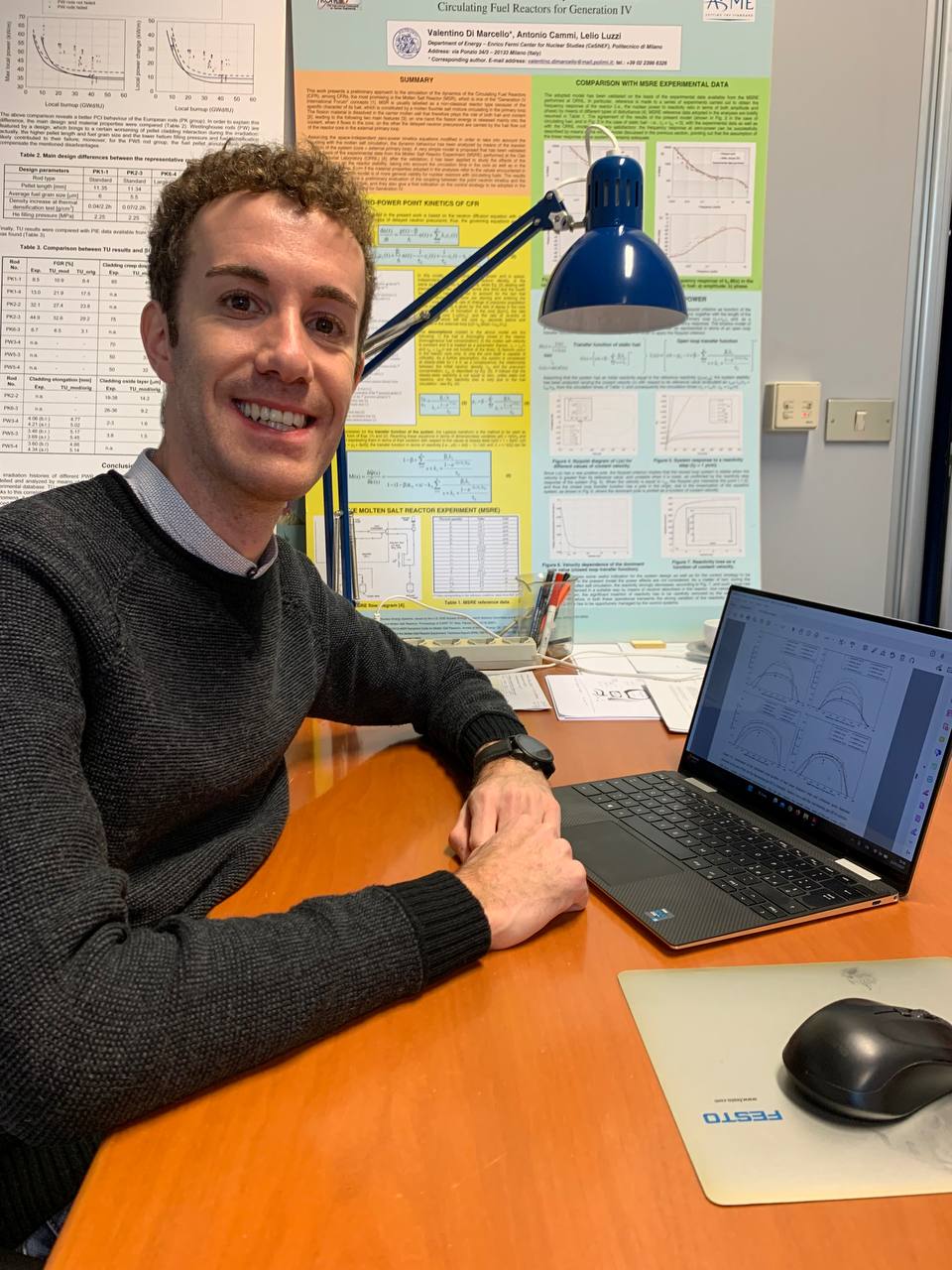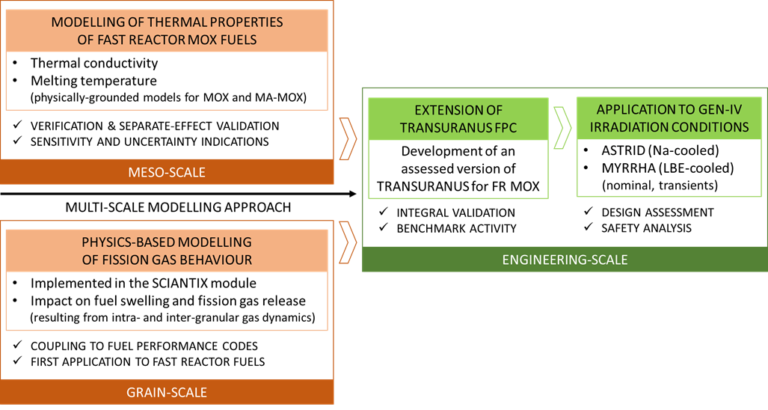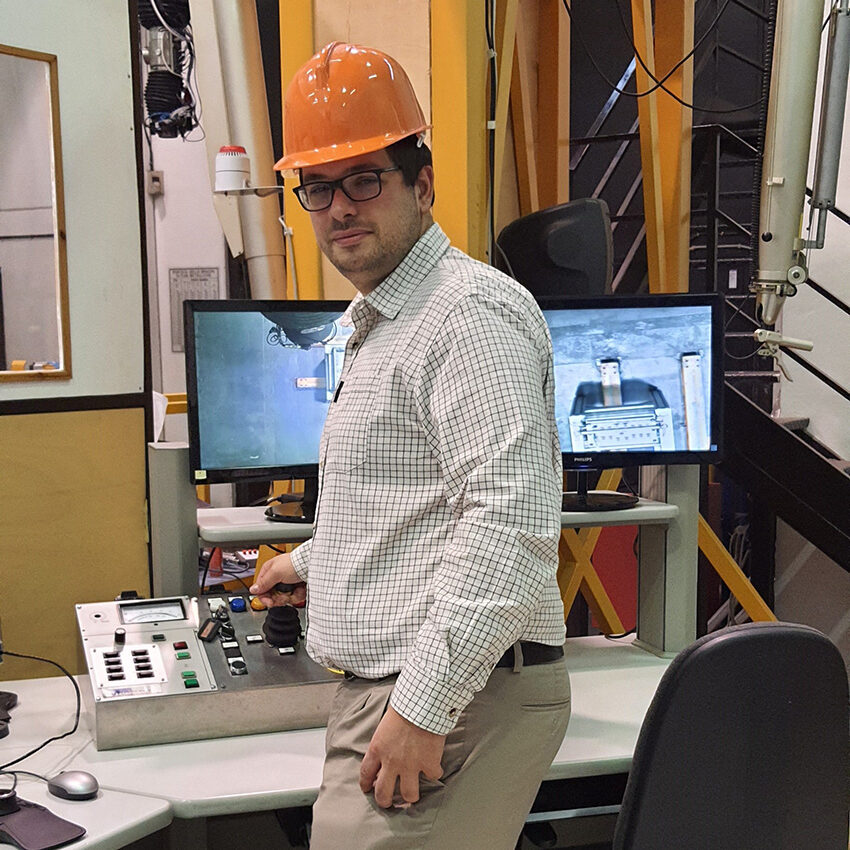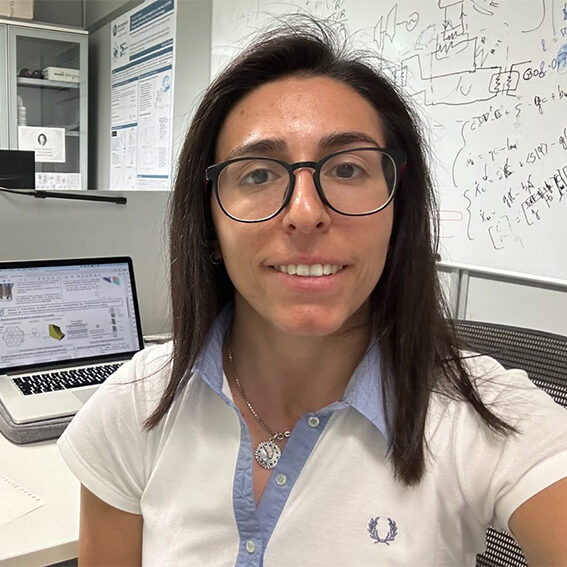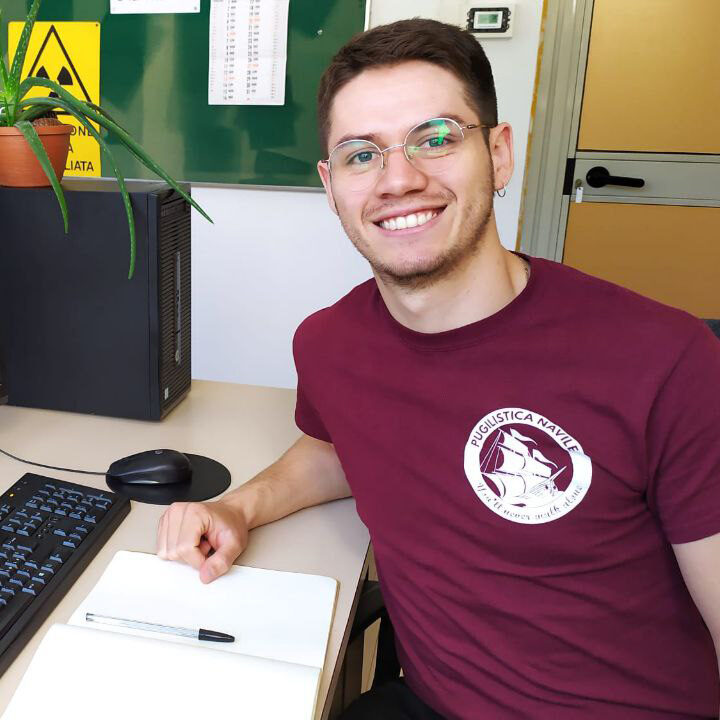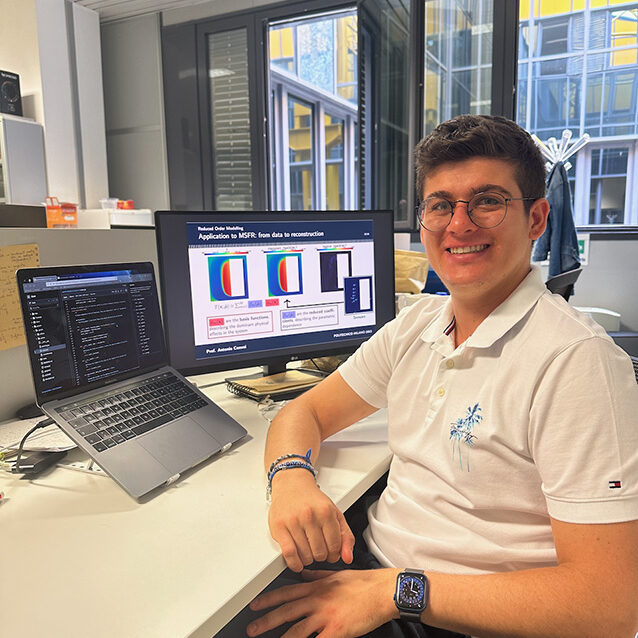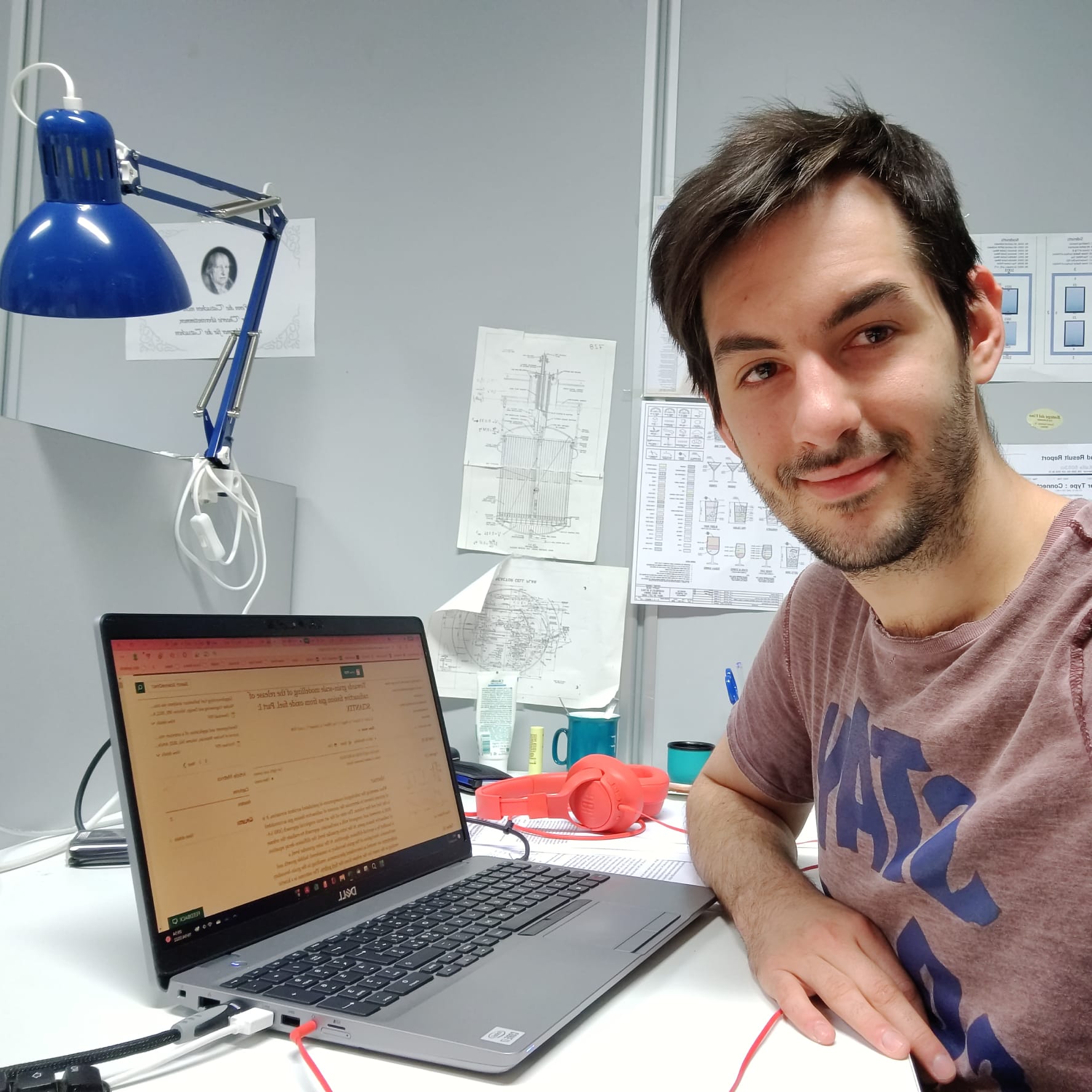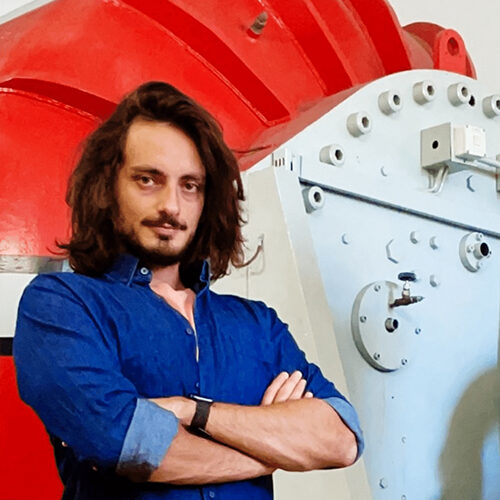Thesis abstract
The development of liquid metal-cooled fast reactors (FRs) of Generation IV (Gen-IV) requires the proper modelling of the properties and behaviour of the fuel pin materials, as well as the assessment of the pin thermal-mechanical performance via fuel performance codes (FPCs). Gen-IV demonstrators and prototypes of different design are currently under development, featuring U-Pu mixed-oxide fuel (MOX) and 15-15Ti stainless-steel cladding materials. The corresponding irradiation conditions are more demanding than the ones typical of commercial Light Water Reactors (LWRs) and call for dedicated and advanced models of the pin behaviour with respect to the current state of the art (to account for e.g., the high pin temperature regimes during normal operation and target fuel burn-up). Moreover, a strategic option under investigation consists in the potentiality of Gen-IV concepts to burn and transmute minor actinides (MA: Am, Np) to reduce the radiotoxicity of spent nuclear fuel and to optimize the utilization of fertile / fissile isotopes in MOX and MA-MOX fuels. A fundamental research activity is represented by the accurate description of the thermo-physical properties of such fuels and by the improvement and assessment of engineering-scale simulation tools targeting the performance of FR fuel pins. In this context, the present PhD thesis focuses on the development of advanced models for thermal properties (thermal conductivity, melting temperature) of mixed-oxide nuclear fuels, and their use in fuel performance codes for integral validation against data from FR irradiation experiments and application to case studies of Gen-IV concepts. Thermal conductivity and melting temperature of nuclear fuels are fundamental properties determining the fuel temperature profile (hence the fuel thermal-mechanical behaviour) and the safety limit concerning the margin to fuel melting, respectively. The novel, physically-grounded models developed in this thesis work represent a step forward with respect to the state of the art (empirical and mainly limited to fuels for thermal reactors), since accounting for relevant dependencies peculiar of MOX thermal properties, in wide ranges targeted by applications in future Gen-IV systems (high as-fabricated hypo-stoichiometry, Pu content and porosity, besides the high temperature and target burn-up). As a process driven by the fuel temperature and enhanced under FR conditions, the modelling activity performed encompasses also the physics-based predictions on fission gas behaviour in mixed-oxide fuels provided by the SCIANTIX grain-scale code, developed at Politecnico di Milano. SCIANTIX, coupled with the TRANSURANUS and GERMINAL FPCs, allows the coherent and mechanistic calculation of oxide fuel swelling and fission gas release, resulting from the description of the intra- and inter-granular gas dynamics. The model verification and separate-effect validation are followed by the implementation in FPCs, for the integral assessment of the upgraded codes against irradiation experiments. The focus in this PhD research is on the TRANSURANUS FPC, within a code benchmark involving the GERMINAL and MACROS FPCs. Lastly, TRANSURANUS is applied for safety evaluations on fuel pins designed for irradiation in future reactors, to verify the compliance of the current pin designs with safety requirements. Case studies related to the ASTRID and MYRRHA Gen-IV FRs are considered, representative of sodium-cooled and accelerator-driven, lead-bismuth eutectic irradiation conditions, respectively. The model development and assessment strategy adopted in this thesis work corresponds to a multi-scale approach encompassing the meso-scale of the fuel grain up to the engineering-scale of the nuclear fuel pin, and paves the way for further developments towards the reliability of simulation tools supporting the design of nuclear reactors of Generation IV.
